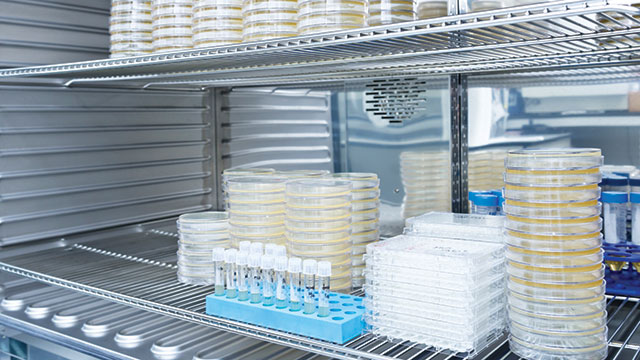Table of Contents
By controlling factors like temperature, humidity, and CO2, laboratory incubators offer a sterile, controlled setting for dependable work with cell and tissue cultures. Bacterial cultures are grown and stored in microbiological incubators. Choosing the best incubator for your needs is essential. While it may seem like a simple process, several factors must be considered before making the decision. Among them is the energy efficiency of the incubator and refrigerator, the type of Drosophila used, and whether it has an oxygen or CO2 monitoring system.
Energy Efficiency
Whether you need a new incubator or refrigerator for your lab, you should first think about energy efficiency. The best units have a high energy efficiency, which saves you money on electricity. This means you don’t have to buy batteries or additional solar panels.
Many labs use microbiological samples for research, including in food studies. It’s crucial to have a stable incubation phase and maintain the proper temperature in the lab when working with microorganisms. A refrigerated incubator is an excellent option for working with microorganisms.
Cooled incubators are ideal for various applications, from histochemical procedures to tissue culture. These units also work well for curing and crystallization studies. They can also be used for bacteria, yeast, and fungus research.
Incubators that use thermoelectric cooling are highly energy-efficient. By using thermoelectric cooling technology, the refrigeration compressor is no longer necessary. This can cut the room’s air conditioner load by as much as 75%.
Gravity Convection
Whether searching for a science incubator for your research or a refrigerator for your cold storage, you should know the differences between gravity convection, forced air, and mechanical convection. Each has its own advantages. The key is to choose the right one for your needs.
Forced air incubators rely on an internal or external blower to distribute heated air. They have excellent temperature uniformity. However, they can be susceptible to drying over time.
Gravity convection models introduce heat through a heating element at the bottom of the internal chamber. This allows warm air to rise throughout the storage area, improving temperature uniformity. These systems are especially suited for non-aqueous samples.
CO2
Keeping the temperature inside a CO2 incubator constant is vital to the growth of cultured cells. This is why a quality incubator should be easy to operate and maintain. It should also offer a variety of features.
Several companies have incorporated infrared (IR) systems into their incubators. These sensors can be more accurate than thermal conductivity (TC) systems. The amount of IR absorbed is related to the CO2 levels in the air sample. This sensor is more reliable when doors are open and less affected by changes in humidity.
The Memmert ICO240 (241 L) CO2 incubator has a stainless steel construction and a three-year warranty. The ICO has a finely tuned control system that reaches set-point temperatures quickly and accurately. The incubator also has a battery-buffered ControlCOCKPIT that sends alarm notifications to your cell phone.
Another feature that can be found in CO2 incubators is auto decontamination. This prevents dangerous condensation from forming on the inside of the chamber. This is especially important for units that house several cell lines.
Drosophila
Whether you are looking for an upgrade from your current drosophila incubator or are just starting to look into Drosophila breeding, you’ll want to do your homework. The market is flooded with low-tech, cheap imitations, and you’ll want to ensure you’re getting the quality you’re paying for.
Thermo Scientific (TM) Drosophila and Low-Temperature Incubators are explicitly designed for Drosophila applications and are microprocessor controlled. They feature programmable temperature cycles, precise control, and a broad temperature range environment. It also has an aesthetically pleasing design and uses less energy than its conventional cousins.
The BioCold Drosophila Incubator is an all-in-one system equipped with a high-capacity circulation system, dual digital displays, and an audible alarm. It also features a thermoelectric cooling system, which provides improved temperature uniformity. In addition, its slick touchscreen user interface makes it a cinch to learn and operate. In fact, it’s the smartest Drosophila incubator on the market today.





No Comments